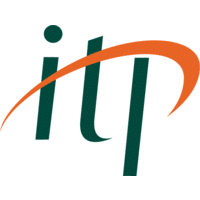Disability Policy

Introduction
Transaid is committed to Equal Opportunities and recognises the importance and value of
diversity. This applies to all our programme activities, the relationships we have with partner
organisations and our staff, volunteers, consultants and staff seconded from other
organisations. Within this we recognise our social, moral and statutory duty with regard to people with disabilities and do all that is practicable to meet this requirement in a responsible way.
Internally, Transaid’s employment policies aim to ensure that people with disabilities receive
treatment that is fair, equitable and consistent with their skills and abilities.
Policy Aim
This aim of this policy is to ensure that people with disabilities receive fair and equitable
treatment.
Application
This policy applies to all staff, volunteers, consultants, staff seconded from other organisations to Transaid, trustees of Transaid and partner organisation.
Practicalities
Recruitment – Transaid does not ask for information on the disability status of job applicants, and short-listing is based solely on the candidate’s skills, experiences and aptitudes.
Appointment – should a candidate with a disability be appointed to a role, the organisation will take all practicable steps to try and facilitate a candidate being able to take up the role.
Disclosure – As many disabilities are not obvious, Transaid has to rely on the staff member, volunteer, consultant, staff seconded from other organisations or applicant making a disclosure about their disability. By having a clear Disability policy and providing reassurance that all personal and medical information is kept strictly confidential, Transaid intends to create a working environment where individuals feel comfortable in disclosing their disability so that they can receive appropriate support.
Existing staff – Transaid will make every effort if an existing employee becomes disabled to retain and retrain them where practicable.
Opportunities for training/development and promotion – Any staff member with a disability will be provided with the same training, development and career promotion opportunities as all other staff.
Anti-harassment – Transaid has a very clear anti-harassment position and will take seriously any claims of harassment against a disabled staff member, consultant or volunteer or any claims of harassment by any of our staff, consultants or volunteers of external people with a disability.
Code of Conduct and Transaid policies
All Transaid staff, volunteers, consultants, staff seconded from other organisations and trustees
are required to sign and abide by the organisations Code of Conduct and all applicable policies.
Raising Concerns
Any person who has concerns about the behaviour of Transaid’s staff, volunteers, consultants,
trustees, partner organisations, staff seconded from other organisations are required to report it
immediately via a senior manager in the organisation. If the concern is about the line manager
then the next person in the line management hierarchy must be alerted. All information relating to
the concerns raised must be kept confidential to the person raising the concern, to the person
who this has been reported and any person involved in an investigation.
Transaid has a nominated Safeguarding Officer who oversees the implementation of this policy
and who can be contacted to raise any concerns. The current Safeguarding Officer is the head of
programmes.
All claims will be fully investigated and will involve the Safeguarding Officer, specialist HR and/or child protection personnel to ensure it is undertaken in the most sensitive and appropriate
manner. Please see Transaid’s Disciplinary and Grievance procedure for more information.
If an individual has concerns about the repercussions of reporting an issue, Transaid also has a
Whistle Blowing policy that guarantees anonymity when raising concerns.










